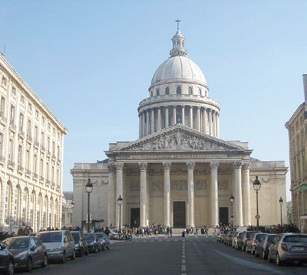An intellectual & political class works to denigrate idea of India
- By : Anirban Ganguly
- Category : Articles

The Pantheon in Paris is a must-visit for all those who wish to see for themselves the manner in which the French people venerate those who have contributed to articulating, narrating and shaping civilisational France. Inspired by the vision and idea of the French civilisation, driven by patriotism to perpetuate and disseminate that idea of France and of French ideals and values, in it rests personalities who instilled the sense of the nation in ordinary minds and hearts. The final resting place of Napoleon Bonaparte—one of the first modernisers of France and of Europe as a whole—at Les Invalides also evokes strong emotions; the sign of celebrating patriotism and of generating a certain pride in nationhood as a legitimate act exudes these commemorative corners, symbols and institutions.
Voltaire, who was convinced that all knowledge came from India, especially from the banks of Ganga, had his corner in the Crypt and opposite him rested Rousseau, that formidable shaper of political discourse. Emile Zola, Victor Hugo, who perhaps more than anyone else shaped the French mind, Alexandre Dumas, Louis Braille, who through his creation of the Braille gave new light, all find a place of honour. Each of them had an inspiring epitaph summarising the ideas and ideals that they embodied.
One saw how students came in regular batches—the Pantheon is next door to the Université Sorbonne —and were taken around by teachers who explained the contributions, the oeuvres, the life and times of these greats. The manner of preserving the remains of these personalities suggested a concrete realisation of their indispensability in shaping and preserving civilisational France. The remains of some of those activists and leaders who died resisting Nazi occupation of France and were leaders of the iconic French Resistance Movement, were relocated to the Pantheon in 2015, indicating that the process of identifying patriots, nationalists and heroes is an active and ongoing process among the French.

















